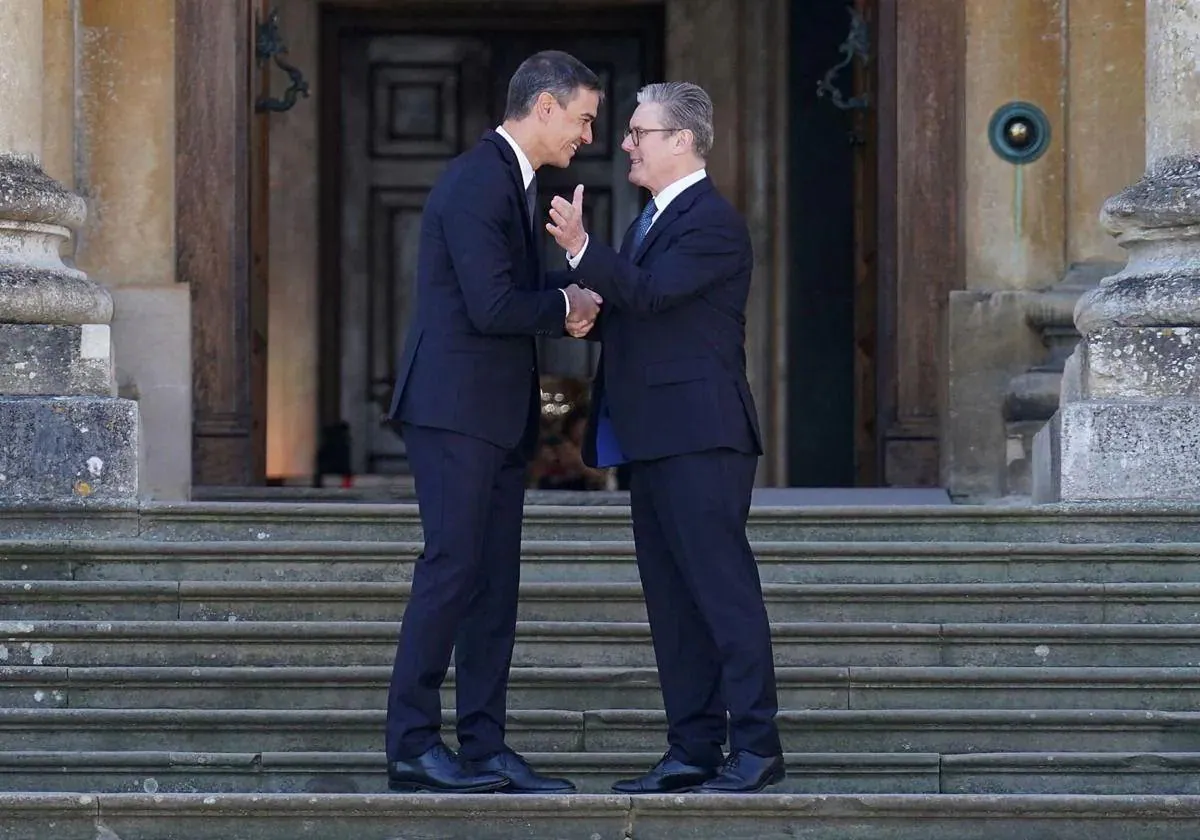

Sections
Highlight

Álavaro Soto
Madrid
Friday, 6 September 2024, 15:18
Optimism over an imminent post-Brexit agreement between Spain, the European Union, the United Kingdom and Gibraltar has turned to uncertainty in recent weeks. The positive signals sent out by all parties have now become more lukewarm, almost since the time the Spanish national football players controversially shouted out "Gibraltar es español" during the celebration of their Euros victory. The Rock's government is now trying to cool down a pact that it believes would undermine its territorial integrity under the terms now being negotiated.
All seemed to be going well. On 18 July, three days after the patriotic footballing outburst, the prime minister, Pedro Sánchez, declared after meeting with the newly elected British PM, Keir Starmer, that the post-Brexit' agreement on Gibraltar "was very close".
"We were very close to being able to reach an agreement with the previous government but the elections in the United Kingdom were brought forward. The fact that we have progressive governments in both countries will make the agreement possible," said Sánchez, who did not name a date, although he did say the negotiations could be concluded "in the coming months".
The ideological affinity between the two left-wing governments to which the Spanish president appealed was first reflected in the fact that at the end of July the new Labour majority in the UK House of Commons forced the dissolution of the European Scrutiny Committee, a government oversight body that had strongly opposed the basis of the negotiations between the UK and the EU. This committee had even called for the dialogue between the EU and Britain to be halted because the agreement on Gibraltar could represent "a serious weakening of the UK's sovereignty".
The document on the Rock's new status received two pushes on 12 April and 16 May, in meetings attended by the Spanish foreign minister, José Manuel Albares, his then British counterpart, the Conservative David Cameron, the vice-president of the European Commission, Maros Sefcovic, and Gibraltar's leader, Fabian Picardo.
Back then negotiators discussed dismantling the border between the Rock and Spain, and it was also agreed that the control of passengers arriving in Gibraltar, from where they would be able to travel throughout the Schengen area (without borders), will be in the hands of the EU border agency Frontex, in turn supervised by Spanish security forces.
Publicidad
Publicidad
Publicidad
Publicidad
Esta funcionalidad es exclusiva para registrados.
Reporta un error en esta noticia

Debido a un error no hemos podido dar de alta tu suscripción.
Por favor, ponte en contacto con Atención al Cliente.

¡Bienvenido a SURINENGLISH!

Tu suscripción con Google se ha realizado correctamente, pero ya tenías otra suscripción activa en SURINENGLISH.
Déjanos tus datos y nos pondremos en contacto contigo para analizar tu caso

¡Tu suscripción con Google se ha realizado correctamente!
La compra se ha asociado al siguiente email
Comentar es una ventaja exclusiva para registrados
¿Ya eres registrado?
Inicia sesiónNecesitas ser suscriptor para poder votar.